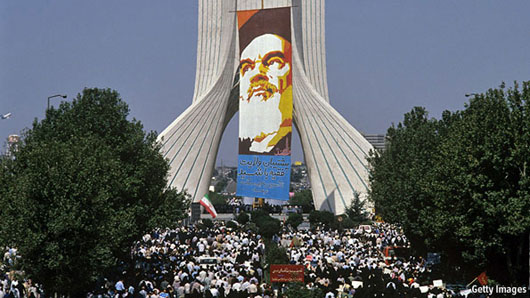by WorldTribune Staff, December 5, 2018
A human rights group has asked the United Nations to investigate and bring to justice those responsible for the executions of thousands of political dissidents in Iran in the summer of 1988.

London-based Amnesty International, in a Dec. 4 report, called on the UN to establish an “independent, impartial and effective international mechanism” to investigate the Iranian regime’s slaughter of at least 5,000 political members of the Mujahedin-e Khalq Organization (MKO), leftist groups, students, and others who were executed by secret “death commissions” in 1988.
Iran’s leaders remained silent during the global outrage over the brutal murder of pro Muslim Brotherhood Saudi activist Jamal Khashoggi at the Saudi embassy in Turkey apparently on orders from senior Saudi officials, if not Crown Prince Mohammed bin Salman himself.
Saudi Arabia has, during the brief reign of the crown prince and U.S. President Donald Trump, aligned more closely with Israel and the Gulf states against Iran which had been poised to dominate the region.
Amnesty’s report is based on testimonies from 100 family members and survivors from across Iran, documents, historical archives, and memoirs, reveals the scale of the executions, which, the rights group said took place in at least 32 cities across Iran within a matter of weeks in July-September 1988, Radio Free Europe/Radio Liberty reported on Dec. 5.
“The fact that to this day the Iranian authorities refuse to acknowledge the mass killings, tell relatives when, how, and why their loved ones were killed and identify and return their bodies, means that the enforced disappearances are continuing today,” Philip Luther, Research and Advocacy Director for the Middle East and North Africa at Amnesty International, was quoted as saying.
“This has inflicted torturous suffering on victims’ families. Until Iran’s authorities come clean and publicly reveal the fate and whereabouts of the victims, these crimes against humanity are ongoing,” Luther added.
Amnesty’s report noted that some of the officials accused of being members of the so called “death commissions” continue to hold state positions, including Iran’s current Justice Minister Alireza Avai.
Meanwhile, the United Nations Security Council met behind closed-doors on Dec. 4 to discuss Iran’s latest missile test, which the United States and other allies said may have been in violation of a 2015 Security Council resolution.
“The United States has repeatedly warned the world about Iran’s deliberate efforts to destabilize the Middle East and defy international norms,” U.S. Ambassador Nikki Haley said in a statement. “The international community cannot keep turning a blind eye every time Iran blatantly ignores Security Council resolutions.”
UK Ambassador Karen Pierce said that the type of missile launched by Iran on Dec. 1 went “way beyond legitimate defensive needs.”
U.S. Secretary of State Mike Pompeo earlier said the ballistic missile was capable of carrying multiple warheads and striking parts of Europe and the entire Middle East.
On Dec. 3, the U.S. special representative for Iran, Brian Hook, urged the European Union to impose new sanctions on Iran, calling the Islamic Republic’s missile program a “grave and escalating threat.”
Check Out Geostrategy-Direct __________ Jump Start the U.S. Media
